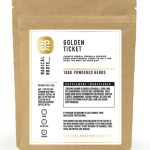As the ancient Greek philosopher Heraclitus wisely observed,
“The only constant in life is change.”
This sentiment rings especially true when it comes to women’s health, particularly in relation to perimenopause — the period leading up to menopause characterized by hormonal shifts and various physiological changes.
This journey is unique for every woman and can often feel confusing or overwhelming. However, with a comprehensive understanding and well-rounded approach, this transition can be one of empowerment and personal growth.
In this post, we will delve into the exploration of perimenopause from two perspectives: Western and Eastern medicine. Both offer unique insights and complementary strategies, providing a holistic approach to managing perimenopause symptoms.
Western Perspective: Understanding the Science
In the Western medical view, perimenopause, usually starting in a woman’s 40s, is a biological process signaling the end of her reproductive years. It can last up to a decade and typically culminates in menopause — a point where a woman has not had a menstrual period for 12 consecutive months[^1^].
Golden Ticket
Created by our founder, Chloe, who knew that she would never skip her cup of coffee! Simply add the coffee, smoothies, or any recipe and support our busy bodies all day.
Topical Relief Salve
In a league of its own in the topical space. This jar contains potent anti-inflammatory herbs in addition to a powerful dose of full spectrum hemp. Just apply to areas of discomfort for long term relief.
During perimenopause, estrogen levels fluctuate and generally decrease, which can result in a variety of symptoms. These may include hot flashes, irregular periods, mood changes, and difficulties with sleep[^2^].
The Western Approach: Supplemental Support
Given the hormonal changes occurring during perimenopause, some doctors might recommend hormone replacement therapy (HRT) to alleviate symptoms[^3^]. However, for those interested in non-hormonal options, there are various supplements that might offer some relief:
- Black Cohosh: This herb has been widely used to help with hot flashes and night sweats. However, the research is mixed, and further studies are needed to confirm its effectiveness[^4^].
- Vitamin D & Calcium: With the decline in estrogen, women become more susceptible to bone loss. Hence, ensuring adequate Vitamin D and calcium intake is important to maintain bone health[^5^].
- Omega-3 Fatty Acids: These are beneficial for heart health, which becomes particularly important as the protection offered by estrogen starts to decrease[^6^].
Eastern Perspective: Embracing the Energy
Eastern medicine, particularly Traditional Chinese Medicine (TCM), interprets perimenopause quite differently. It views this period as a natural shift in a woman’s “yin” and “yang” energies[^7^].
In TCM, perimenopause is seen as a time when the Kidney yin (representing cooling, moistening functions) starts to decline, leading to a relative excess of yang (representing heat and activity). This imbalance can explain symptoms like hot flashes, night sweats, and restlessness[^8^].
The Eastern Approach: Herbal Harmony
To address these changes, TCM utilizes a variety of herbs and techniques, intending to restore the balance:
- Dong Quai: Known as “female ginseng,” Dong Quai is often used to alleviate menopausal symptoms. It’s believed to nourish the blood and harmonize vital energy[^9^].
- Rehmannia: This herb is renowned for its kidney yin replenishing properties and can help reduce heat-related symptoms like night sweats[^10^].
- Goji Berries: As a nutritional powerhouse, Goji berries are used to nourish the yin and boost the immune system[^11^].
Always remember, before starting any new supplement or herbal regimen, it’s crucial to consult with a healthcare provider due to potential side effects and interactions.
In conclusion, both Western and Eastern medical perspectives offer valuable insights and strategies for managing perimenopause. Through a blended understanding and personalized approach, this phase of life can be navigated with confidence and empowerment.
Remember, perimenopause is not just a phase to endure; it’s a phase to embrace, representing a new chapter of wisdom and self-discovery. The key lies in understanding, self-care, and finding the balance that works best for you.
^ [1^]: Harvard Health Publishing: Perimenopause
^ [2^]: Mayo Clinic: Perimenopause
^ [3^]: Women’s Health Concern: HRT
^ [4^]: NCCIH: Black Cohosh
^ [5^]: National Osteoporosis Foundation: Calcium/Vitamin D
^ [6^]: American Heart Association: Omega-3 Fatty Acids
^ [7^]: Academy of Classical Oriental Sciences: Yin & Yang
^ [8^]: Pacific College: Menopause
^ [9^]: Healthline: Dong Quai
^ [10^]: Verywell Health: Rehmannia
^ [11^]: Healthline: Goji Berries






